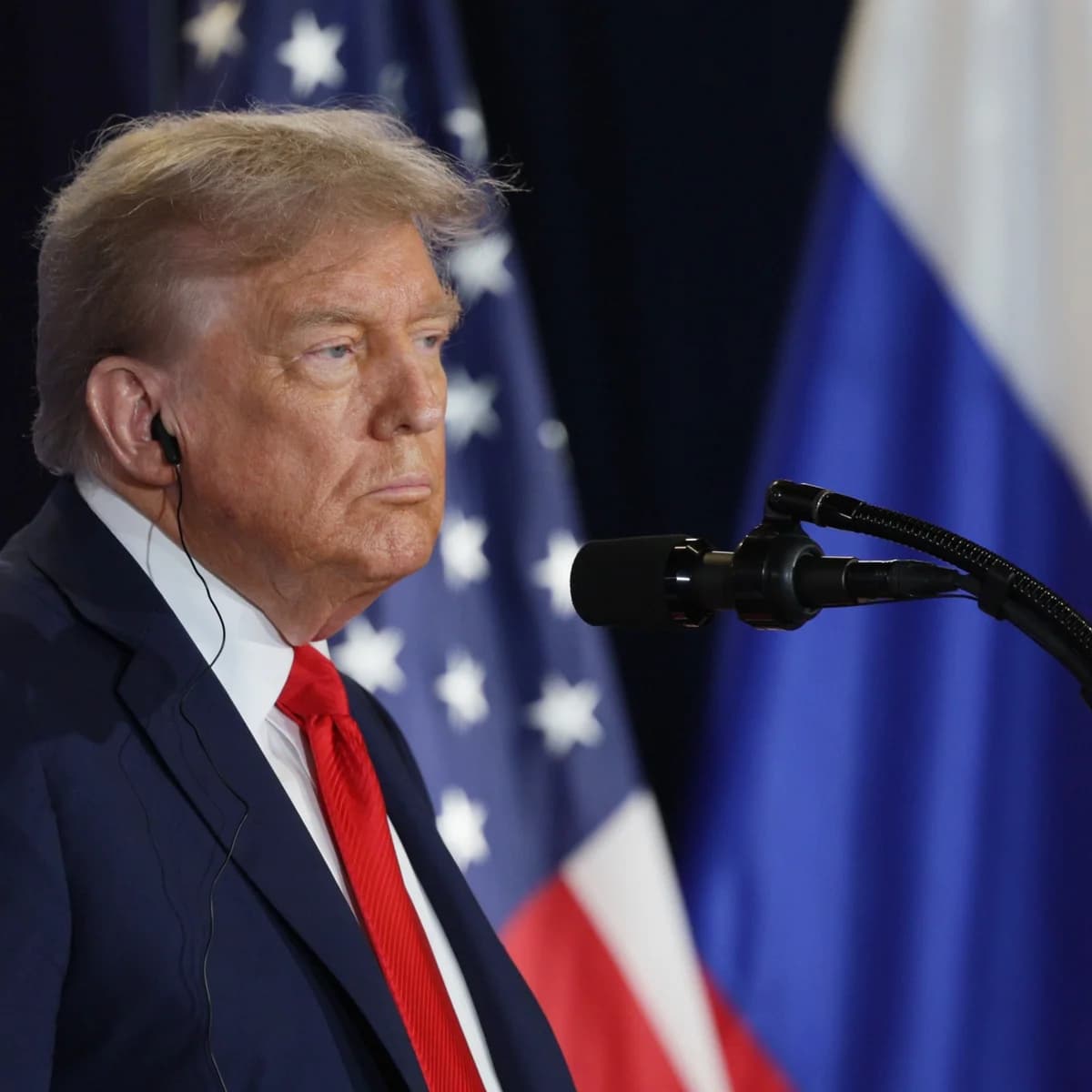We're loading the full news article for you. This includes the article content, images, author information, and related articles.
Following a tense meeting with Ukrainian President Volodymyr Zelenskyy, US President Donald Trump suggested Ukraine should cede its Donbas region to Russia to end the ongoing conflict, a move that has significant implications for regional stability and international diplomacy.

US President Donald Trump has proposed that Ukraine should accept the current territorial lines in the Donbas region, effectively ceding most of it to Russian control, as a pathway to end the nearly four-year-long war. The suggestion came on Sunday, October 19, 2025, aboard Air Force One, following a reportedly tense meeting with Ukrainian President Volodymyr Zelenskyy at the White House on Friday, October 17, 2025.
“Let it be cut the way it is,” Trump told reporters, adding, “It’s cut up right now.” He further stated that both sides should “stop at the battle line – go home, stop fighting, stop killing people,” with negotiations for a long-term solution to follow.
This marks a notable shift from Trump's earlier stance in September, when he expressed confidence that Ukraine could reclaim all its territory and even advance into Russian lands, describing Russia as a “paper tiger.”
President Zelenskyy's visit to Washington was aimed at securing long-range Tomahawk cruise missiles, a critical request that would significantly enhance Ukraine's ability to strike targets deep within Russia, including Moscow.
However, the Ukrainian leader left the White House without a commitment for the advanced weaponry. During the meeting, Trump reportedly expressed concerns about depleting US stockpiles and the potential for a major escalation of the conflict. Zelenskyy, while not receiving an immediate 'yes,' noted that Trump did not explicitly say 'no' and expressed hope for continued dialogue on the matter.
Ukrainian officials, including Foreign Minister Andrii Sybiha, have argued that the mere discussion of providing Tomahawks has already served a purpose by pressuring Russian President Vladimir Putin into talks.
Trump's comments followed a lengthy phone call on Thursday, October 16, 2025, with Russian President Vladimir Putin, where they agreed to meet soon in Budapest, Hungary, to discuss an end to the war. This proposed summit has garnered attention, with the European Commission indicating support if it leads to peace, despite Putin being subject to an International Criminal Court (ICC) arrest warrant.
Reports suggest the White House meeting between Trump and Zelenskyy was contentious, with Trump reportedly urging Zelenskyy to accept Putin's terms and warning of Ukraine's potential destruction if a deal was not reached. European officials briefed on the discussions indicated that Trump appeared to echo many of Putin's talking points during the meeting.
For Kenya, a prolonged conflict in Ukraine continues to impact global supply chains, particularly for essential commodities like grain and fuel, leading to increased costs and economic pressures. Any resolution, or lack thereof, directly influences international stability and trade dynamics, affecting Kenya's economic outlook and diplomatic engagements.
The exact date for the proposed Trump-Putin summit in Budapest remains unconfirmed. Furthermore, the specifics of any potential peace deal, particularly regarding the future of the Donbas region and other occupied territories, are yet to be outlined. The extent of international support for Trump's proposed approach, especially from European allies, will be a key factor to watch.
Observers will be closely monitoring developments surrounding the planned Trump-Putin meeting in Budapest and any subsequent discussions regarding a ceasefire or territorial concessions. The ongoing dialogue between the US and Ukraine concerning military aid, especially the potential provision of long-range missiles, will also remain a critical point of interest. The global community awaits clarity on how these diplomatic efforts will impact the trajectory of the conflict and its broader geopolitical consequences.
Keep the conversation in one place—threads here stay linked to the story and in the forums.
Sign in to start a discussion
Start a conversation about this story and keep it linked here.
Other hot threads
E-sports and Gaming Community in Kenya
Active 9 months ago
The Role of Technology in Modern Agriculture (AgriTech)
Active 9 months ago
Popular Recreational Activities Across Counties
Active 9 months ago
Investing in Youth Sports Development Programs
Active 9 months ago